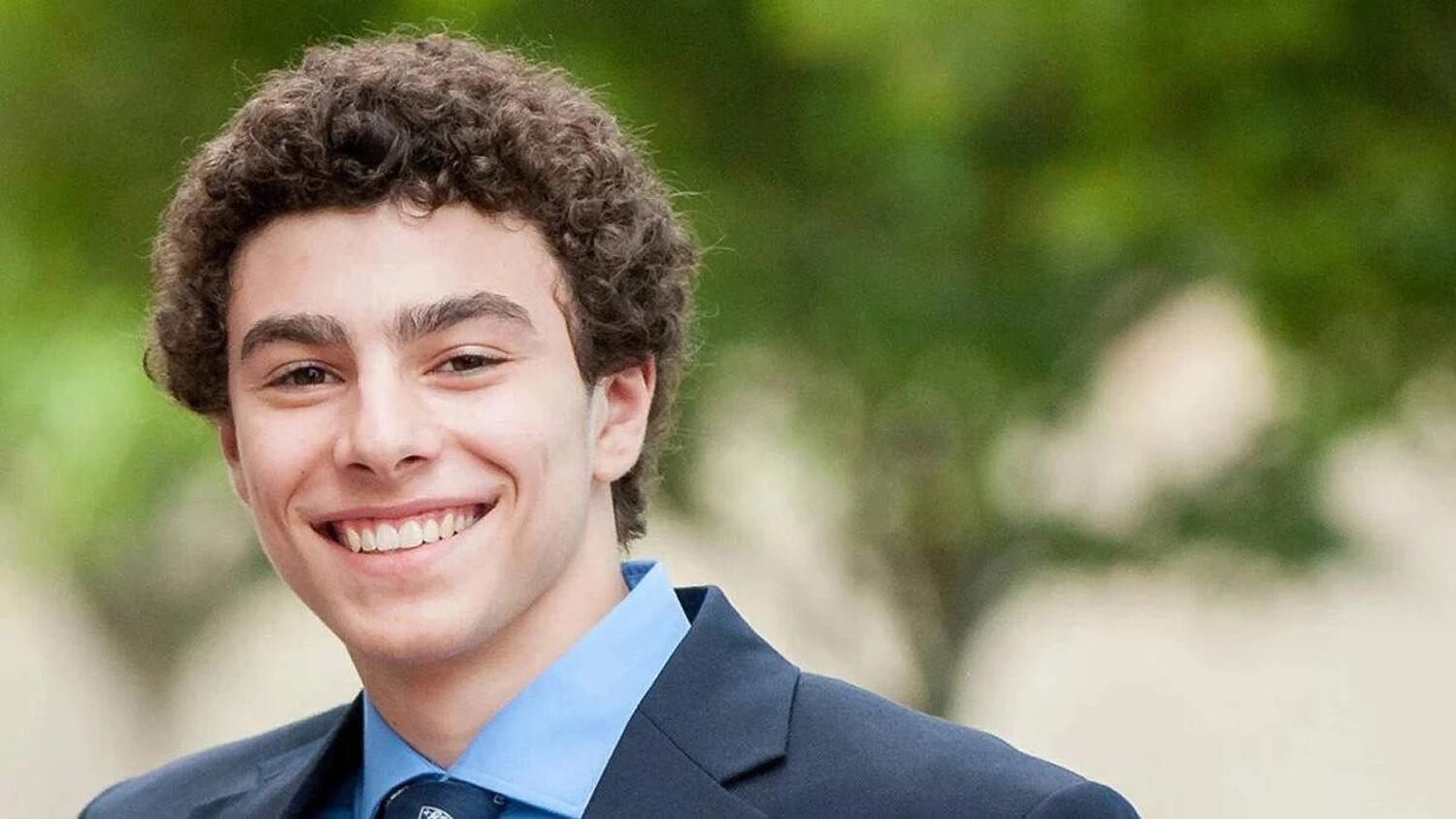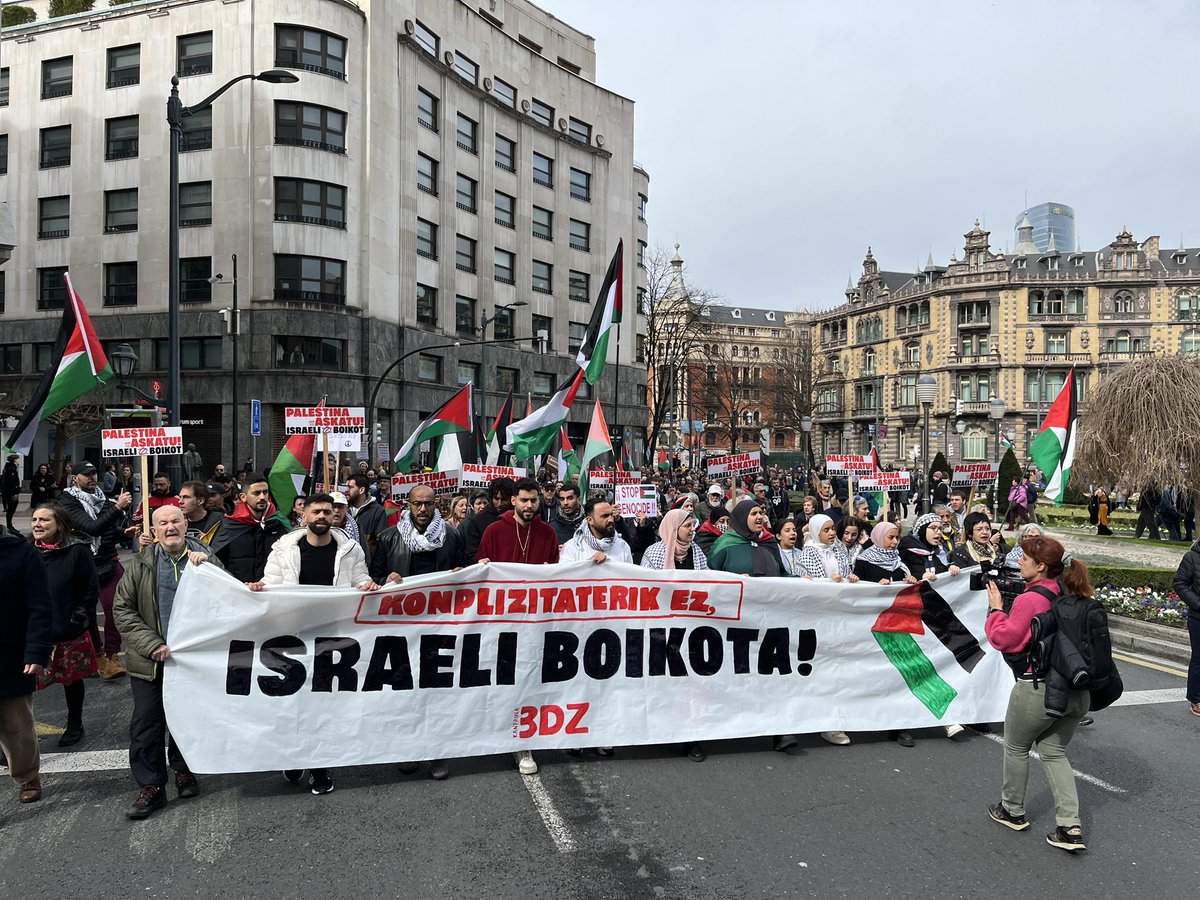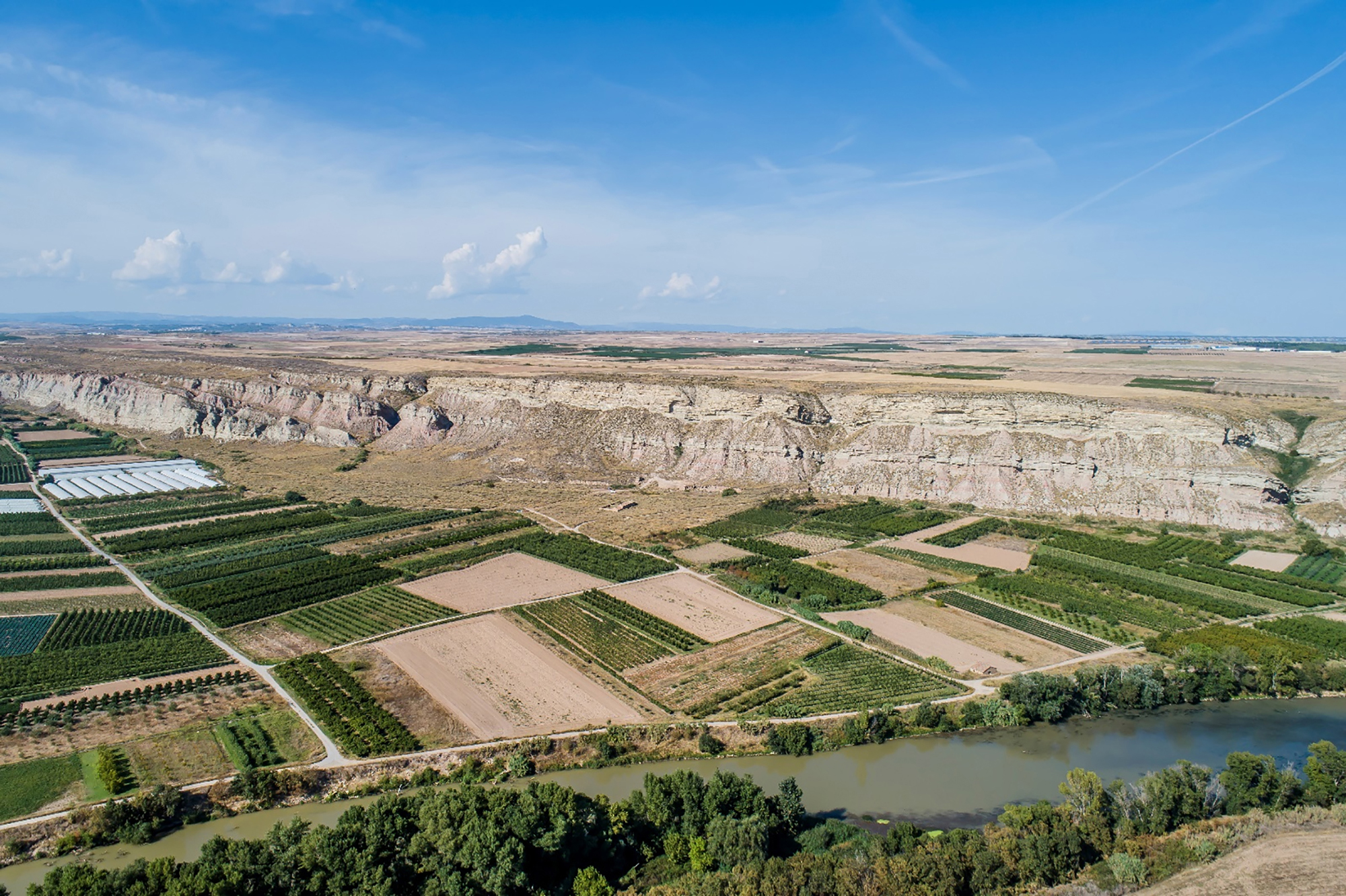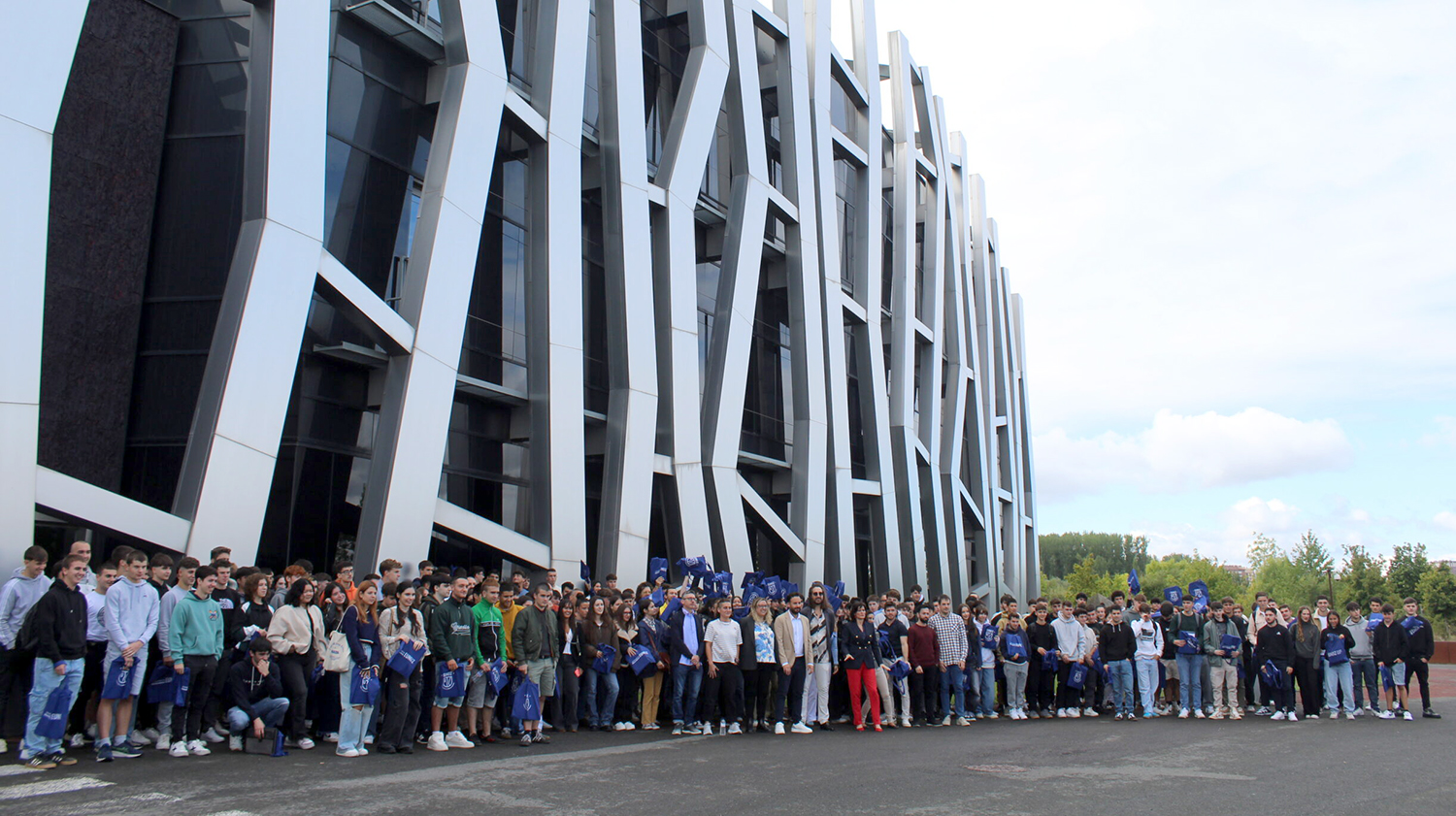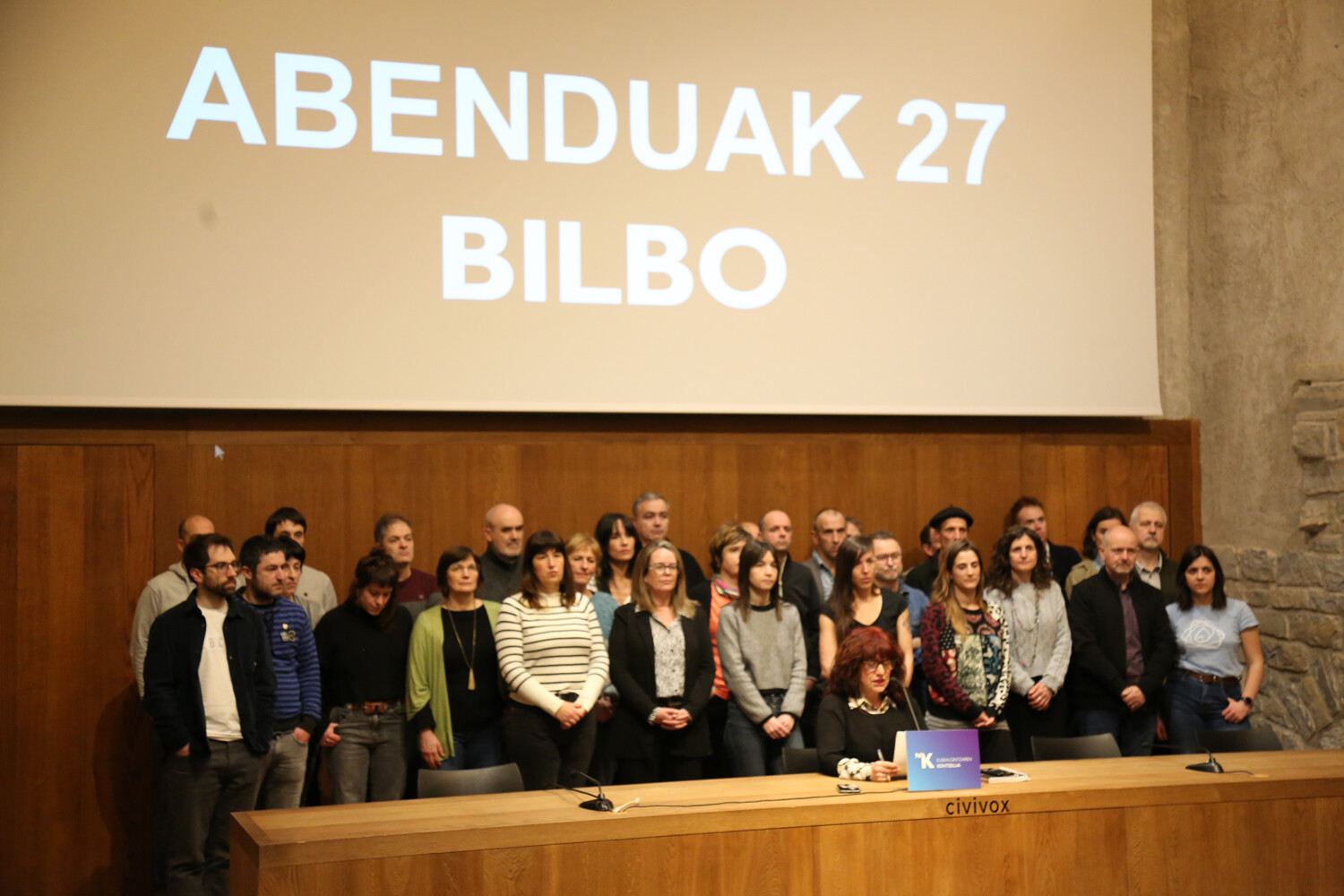How peace is built
The “We Need Peace” poster was lowered on 27 October by the balcony of the Bizkaia Foral Council just a week after ETA’s announcement of the final cessation of armed activity.
Representatives of PNV, PSE and pp thought that we do not need to make a peace declaration, because we already have it. And the opposite is what I imagine: now we have to guess how peace is built, because we have no precedents in our history.
These days he talks a lot about the subject. In the Basque capital, Palestinian Nour Aldin Shehada, American Andrea Leblanc and Israeli Avner Horwitz have been cited, among others, from the hand of the Sabino Arana Foundation. The Palestinian fought Israel before joining the Combatants for Peace Association. According to him, the key is “being able to sit at the same table. Being close, listening, listening, listening, and putting yourself in the place of the other, of the person who feels the person. To hear the truth of the other and to feel the suffering of the other.” Words are similar to those of Andrea Leblanc. Her husband was traveling on one of the two planes that crashed into the Twin Towers of the Biscayan capital. Leblanc says that “despite being very different between us, even if we speak different languages, we are able to understand the feelings of others, and that is what makes it possible to work together for peace.”
Yes, but no. Yes, we must talk, of course, but pacification must not be based on feelings. As I turned around the idea, Lokarri's coordinator, Paul Ríos, has said what I think: “Asking for forgiveness obliges the victim to respond. And that's not fair. I prefer recognition of the pain caused.”
I totally agree.
“Asking for forgiveness” has a religious character and immerses us in the realm of morality. But morality is established by the powerful (Nietzsche), dictates short-term laws and is an ad hoc regulation. Nothing has to do with ethics.
Apologies are asked if the same scale of values as those established by the norm are accepted and the dynamics of sin/redemption are accepted. Another thing would be to talk about ethics, because ethics is a value superior to the morals of the time. Ethics says killing is regrettable. Always. Morality, on the other hand, can condemn the murder of the Civil Guard and applaud the murder of Bin Laden or the murder of Muamar al Gaddafi. It could condemn the murder of Mikel Zabraise and applaud the murder of Carrero Blanco or Meliton Manzanas. Morality responds to an ideology, ethics does not.
Therefore, let us leave the excuses and take on the pain caused, because for that we only have to do an exercise of displacement: to put one in the other's place and look from that watchtower the problem, and, on the contrary, to bring the other into his place and show how things look from that space. From an honest perspective, it is natural to understand the point of view of the enemy.
(UK Journal No 204)
Linear A is a Minoan script used 4,800-4,500 years ago. Recently, in the famous Knossos Palace in Crete, a special ivory object has been discovered, which was probably used as a ceremonial scepter. The object has two inscriptions; one on the handle is shorter and, like most of... [+]
Londres, 1944. Dorothy izeneko emakume bati argazkiak atera zizkioten Waterloo zubian soldatze lanak egiten ari zela. Dorothyri buruz izena beste daturik ez daukagu, baina duela hamar urte arte hori ere ez genekien. Argazki sorta 2015ean topatu zuen Christine Wall... [+]
Gozamen aparta bezain deskribatzeko zaila dakar, norbaiten hitzak irakurri edo entzun ostean, zera pentsatzeak: “Horixe zen neu aurreko hartan azaltzen saiatu nintzena!”. Idazlea eta itzultzailea da María Reimóndez, eta galegoz aritzen da, hizkuntza... [+]
Segurtasun falta dagoen irudipena handitu dela azaldu du Eustaten azken txostenak. Gurean, Trapagaranen, Segurtasuna orain, delinkuenteen aurka manifestaziora deitu dute herritar batzuek.
Bi izan dira sentsazio hori zabaltzeko arrazoiak. Batetik, udalak Udaltzaingoaren... [+]











